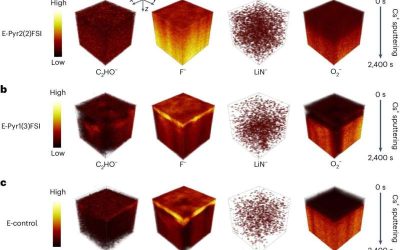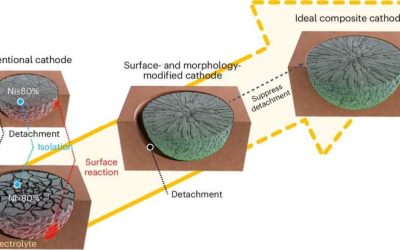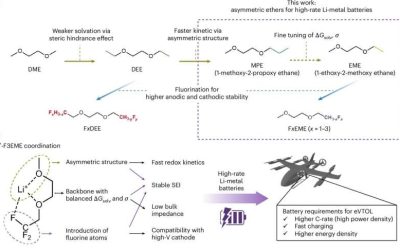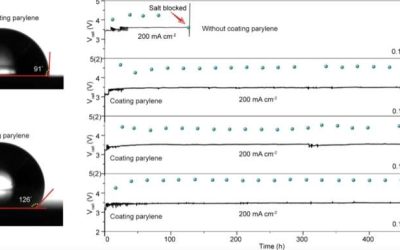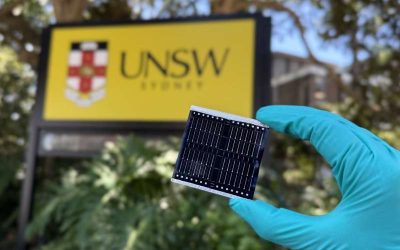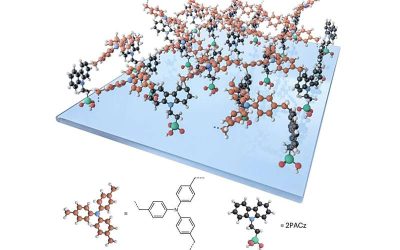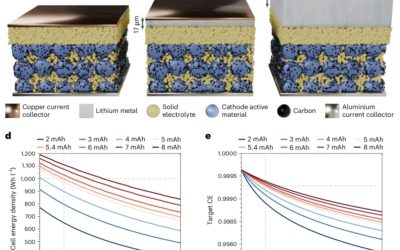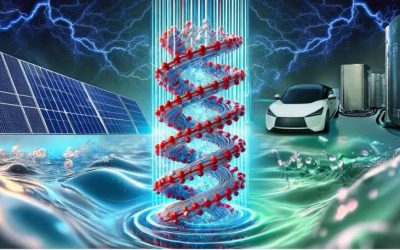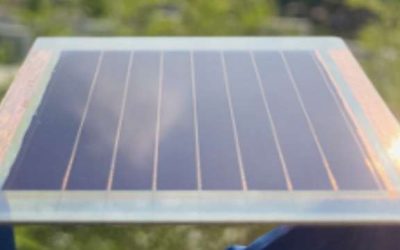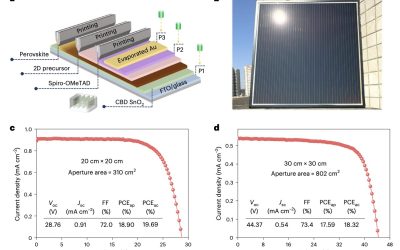In recent years, researchers have been trying to develop increasingly advanced battery technologies that can be charged faster and store more energy, while also remaining safe and stable over time. Lithium-metal batteries (LMBs), which contain a lithium-metal-based...
Energy & Green Tech
New highly performing Ni-rich cathode active materials for all-solid-state batteries
To support the further advancement of the electronics industry, energy researchers have been trying to develop new battery technologies that could be charged faster, power devices for a greater amount of time and have longer overall lifetimes. Some of the most...
Asymmetric ether solvents enhance Li-metal battery charging and stability
To fuel the future advancement of the electronics industry, engineers will need to develop batteries that can be charged quickly, have higher energy densities (i.e., can store more energy) and last longer. Among the most promising alternatives to lithium-ion (Li-ion)...
Hydrophobic surface coating strategy addresses CO₂ electroreduction stability challenges
The conversion of carbon dioxide (CO2) into valuable chemical products via the electrochemical CO2 conversion reaction could be highly advantageous. This conversion process could help to make good use of excess CO2 in the air collected by carbon capture...
Hydrogen annealing approach sets new efficiency record for kesterite solar cells
Photovoltaics (PVs), devices that can convert sunlight into electrical power, are becoming increasingly widespread and more people worldwide are now relying on them to generate electricity. Renewable energy engineers worldwide are working to identify materials and...
A self-assembled bilayer could enhance the thermal stability of perovskite solar cells
Over the past few years, photovoltaic (PV) technologies have become increasingly widespread, contributing to the ongoing quest to reduce greenhouse gas emissions. While most solar cells on the market today are made of silicon, other materials are emerging as promising...
Thermal evaporation emerges as a promising strategy for scalable solid-state battery production
Solid-state lithium batteries are promising energy storage solutions that utilize solid electrolytes as opposed to the liquid or gel electrolytes found in traditional lithium-ion batteries (LiBs). Compared to LiBs and other batteries that are used worldwide, these...
Harnessing spin: New electrocatalysts could transform hydrogen production efficiency
Electrocatalytic water splitting, a process that entails breaking down water into hydrogen and oxygen, is a promising approach to produce clean hydrogen for fuel cells, which could in turn be used to power large electric vehicles. So far, the real-world use of this...
Novel green solvent could help scale up fabrication of perovskite-based tandem solar cells
In recent years, engineers have been trying to develop alternative photovoltaic (PV) technologies that could be more affordable and scalable than silicon-based solar cells, while also exhibiting good power-conversion efficiencies and retaining these efficiencies over...
Scalable technique enhances 2D layer formation in solar cells
Solar cells based on perovskites, a class of materials with advantageous optoelectronic properties, have recently achieved power conversion efficiencies (PCEs) comparable to those of some silicon-based photovoltaics. Moreover, perovskite-based solar cells could be...

